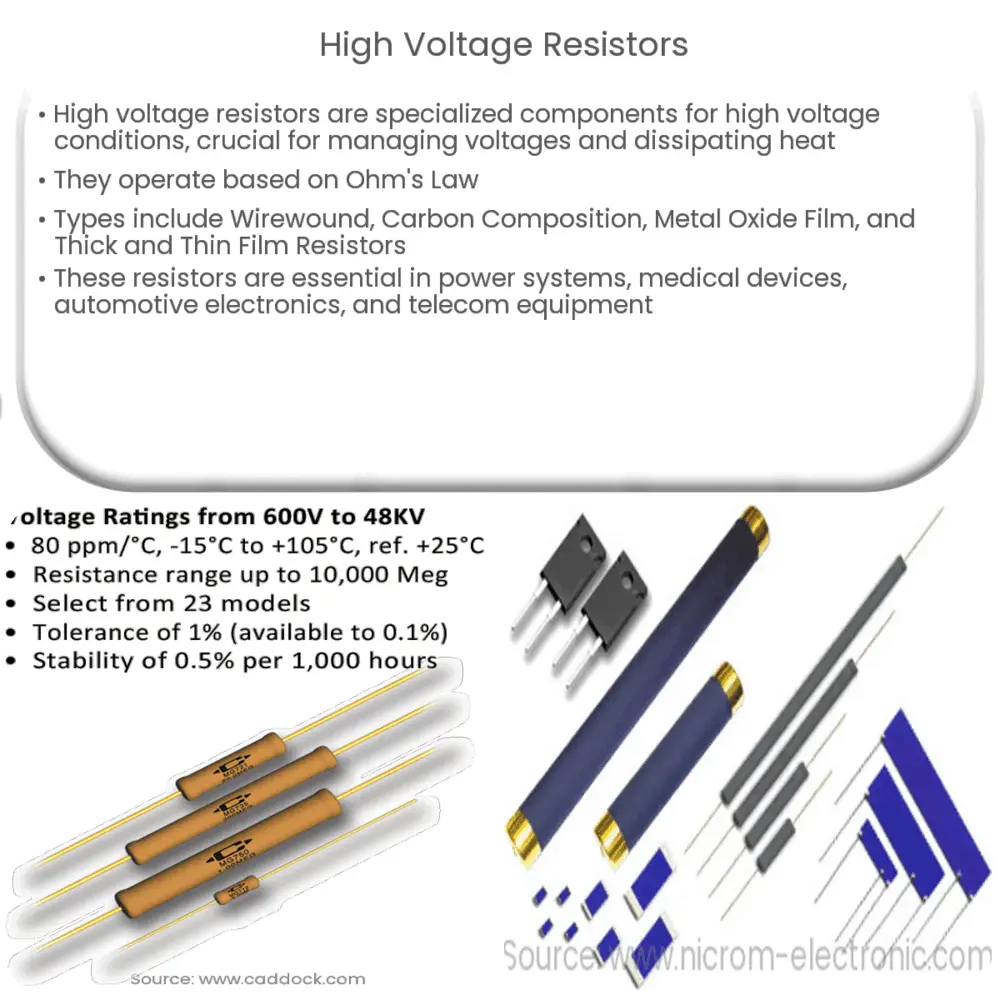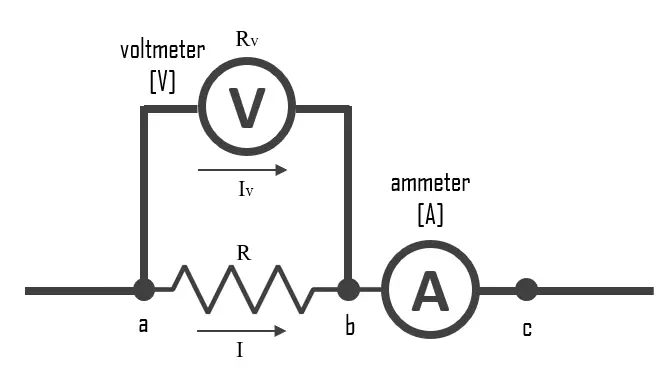Dive into the world of high voltage resistors, exploring their operation, types, and crucial roles in various high-voltage applications.

Understanding High Voltage Resistors
High voltage resistors, as the name suggests, are specialized electrical components designed to function under high voltage conditions. These resistors are crucial in a range of applications due to their ability to safely manage high voltages and dissipate heat effectively. This piece aims to provide an in-depth understanding of high voltage resistors, their working principles, types, and applications.
Principle of Operation
Resistors, in general, operate based on Ohm’s Law, which states that the current through a conductor between two points is directly proportional to the voltage across the two points, and inversely proportional to the resistance between them. Expressed mathematically as I = V/R, where I is the current, V is the voltage, and R is the resistance.
However, high voltage resistors have unique characteristics to handle higher voltage levels without breakdown. These characteristics include greater physical dimensions to avoid arcing, specialized materials for resistance elements, and robust construction to handle thermal stress.
Types of High Voltage Resistors
Wirewound Resistors: These resistors utilize a high resistivity wire wound around a non-conductive core. The winding’s length and thickness determine the resistance value. They can withstand high temperatures and are typically used in power supplies and current limiting applications.
Carbon Composition Resistors: These are made of a carbon powder and binder mixture, which provides the resistive path. Though not as precise as other types, they are highly reliable and can handle high voltage pulses effectively.
Metal Oxide Film Resistors: These have a metal oxide film as a resistive element. They offer high stability, low noise, and high operating temperatures, making them suitable for high voltage applications.
Thick and Thin Film Resistors: These resistors have a resistive film applied onto a ceramic base. The film’s thickness determines the resistance, and laser trimming can create precise values. These are often used in circuits requiring high precision.
Applications of High Voltage Resistors
High voltage resistors play a significant role in many applications. Some notable uses include power generation and distribution systems, medical equipment, automotive electronics, and telecommunication systems. We will delve deeper into these applications in the next section.
High Voltage Resistors in Various Applications
Power Generation and Distribution: High voltage resistors are fundamental in power systems to limit the current, suppress voltage surges, and ensure safety. For instance, they are used in the design of transformer protection circuits and high voltage test equipment.
Medical Equipment: Sophisticated medical devices like MRI machines, X-ray equipment, and defibrillators often operate at high voltage. Reliable resistors are vital in these settings to ensure precise performance and patient safety.
Automotive Electronics: Modern vehicles incorporate a plethora of electronic systems, some of which operate at high voltage, like electric power steering and brake systems. High voltage resistors are used to manage these voltages effectively.
Telecommunication Systems: High voltage resistors are also employed in telecommunication equipment to handle high voltage signals and protect circuits from potential damage due to voltage spikes.
Choosing the Right High Voltage Resistor
Selecting the appropriate high voltage resistor for a particular application can be a challenging task. It involves careful consideration of factors such as the maximum voltage, power rating, tolerance, temperature coefficient, and physical size. Manufacturers often provide datasheets that detail these specifications, assisting engineers and designers in making informed decisions.
Conclusion
In conclusion, high voltage resistors are vital components in various electrical and electronic systems. They ensure that high voltage applications run safely and efficiently by managing current and dissipating heat. Whether it’s in medical equipment, power systems, automotive electronics, or telecommunication devices, the importance of these robust resistors cannot be overstated.
As technologies advance and the demand for high voltage, high precision applications grow, the role of high voltage resistors is likely to become even more significant. Therefore, understanding their operation, types, and uses is essential for those involved in electronic design and engineering.



